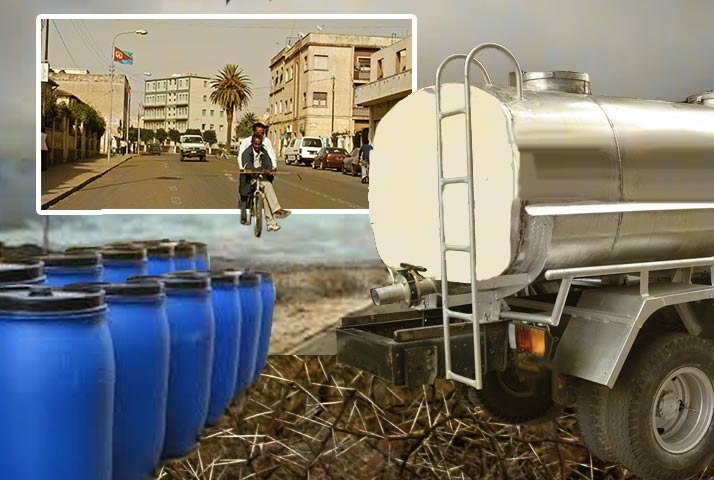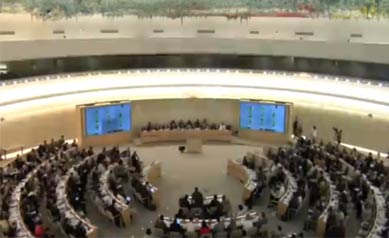Water: Black Market Economy of Eritrea

Four people were arrested on Monday in Asmara after they were caught selling water to citizens from a water tanker. It is illegal to supply water to homes and businesses without the approval of the Eritrean authorities. According to a resident of Asmara, “the government monopolizes water like other mineral resources, like the Bisha mines.”
Urban centers in Eritrea have been suffering from water shortage for many years. Most aquifers have long dried up and a negligible number of artesian wells remain operational, though they provide only scanty water.
The ground water reservoir has been severely depleted and water table has receded to its lowest level since the 1930s.
Most private owners have been trying to drill deeper in the hope of getting ample supply of fresh water, but still, they can only pump a little brackish water, “and that is after digging up to about ten-meters deep from the ground surface.”
People resort to giving the task of digging and drilling wells to unqualified people and that has led many injuries including death. Several people were killed or injured when the walls of the hole caved in drowning them in muddy water or burying them alive.
Such activities are done behind the back of the government that seals private wells with cement to prevent losing control over the supply of water.
According to a resident of Asmara, “the supply of water has gone underground and only those who have money can buy it on the black market, paying as much as 300-550 Nakfa per barrel.”
The average monthly salary of a national service conscript is around 500 Nakfa, approximately US$25.
Related Reading:
Eritrea Suffering From Persistent Water Shortage



Awate Forum